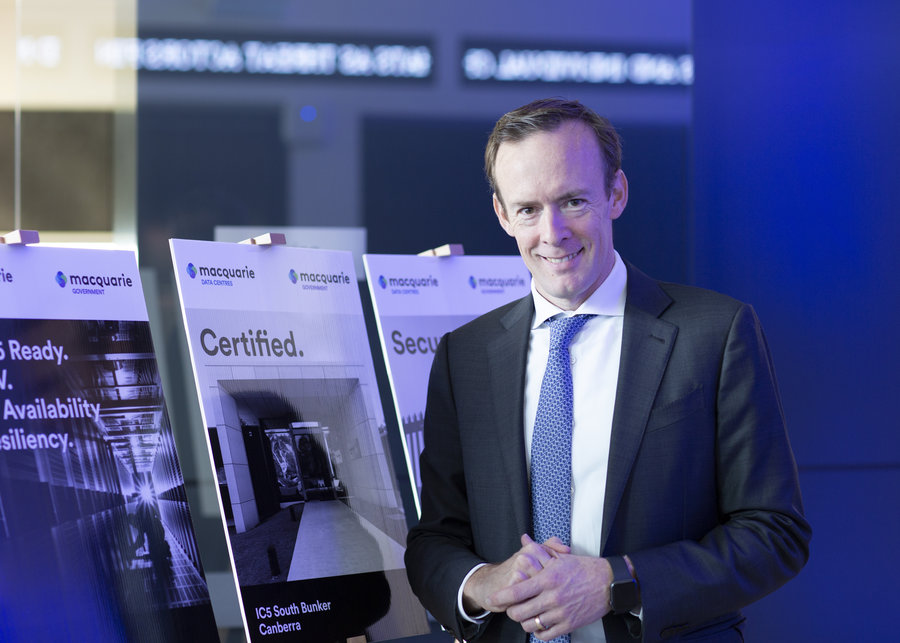
An Australian startup is rolling out modular data centres across NSW, promising direct cloud access and faster internet speeds for local governments embarking on the smart city journey.

Market newcomer Leading Edge Data Centres is currently establishing a foothold for its prefabricated Tier 3 data centres across regional NSW and plans to establish a presence in Victoria and Queensland next year.
The company was set to launch a centre in Newcastle this week and is set to go live in Tamworth, Dubbo, Albury, Coffs Harbour, Wagga Wagga and Bathurst before December.
LEDC also has seven locations planned in Victoria, says CEO Chris Thorpe.
“The state government has been quite engaging and we’re in discussions at the moment about potential incentives that would help us accelerate the rollout at some sites,” Mr Thorpe told Government News.
It’s been a lightning rise for the startup, Mr Thorpe says.
“We originally had this idea about two years ago,” he says.
“We were watching the growth of cloud in the US and Europe, and here, and what was becoming very evident was all the focus in Australia was for that to be built in Sydney, or Melbourne.
“That’s great, but if you live in regional Australia your access to the cloud is limited. There are issues around choice, connectivity isn’t very strong, and you have latency issues because of distance.”
Connectivity charges can also increase dramatically with distance from metropolitan areas.
“Regional local government has really been operating with its hands tied behind its back,” he said.
Meshed network
Mr Thorpe came up with the concept of building quality infrastructure for regional locations with connected data hubs creating a mesh-distributed computing capability.
He says the company isn’t out to compete with the big players in the field like NEXT DC, Equinix and Macquarie, which recently opened a $17 million government facility in Canberra.
“We’re actually everybody’s friend,” he says. “We’re not competing with any of the major players, we’re providing an extension to the centralised system.”
The company is privately funded but last May secured $20 million from Australian investment company Washington Soul Pattinson.
It also received investment as one the 2020 cohort of the SparkLabs Cultiv8 2020 accelerator group, which helps agtech startups achieve growth.
In December the company inked a deal with Cisco to build and deploy the centres, which come in either 30 or 75 rack configurations and are being built on site in Heatherbrae in NSW.
Local councils, many of them already exploring smart city options, are coming on board. LEDC counts Newcastle City Council as a client and Mr Thorpe says four or five others are on the way to signing up.
“We are highly engaged now with all councils across NSW and Victoria and we’re opening up those conversations in Queensland,” he said.
Mr Thorpe says his company also provides security around data sovereignty, which he says will be a “massive issue” this year, as the data will be held in Australia and not subject to laws that might govern offshore cloud companies.
Expanding market
A report on the Australian Data Centre landscape by international market research company Arizton released last year estimates that in terms of investment the Australian data centre market will grow by almost 3.5 per cent by 2025.

Managing Director of Macquarie Government, Aidan Tudehope, welcomed the entry of new companies into the market, saying it was a security safeguard to not have all Australia’s “data eggs” in one basket.
“The needs of different Federal Agencies, state governments and LGAs are diverse,” Mr Tudehope told Government News.
“The data centre locations, security environments and offerings should also be diverse and tailored to the needs of each agency.”
Arizton also notes that local government smart cities projects increased by 21 per cent in 2019 – a rise 11 per cent compared to 2018.
Over 90 per cent of SMEs in Australia are expected to operate via the cloud, and over 80 per cent of medium-sized and large data centres will be outsourcing their operations by 2023, the report predicts.
Comment below to have your say on this story.
If you have a news story or tip-off, get in touch at editorial@governmentnews.com.au.
Sign up to the Government News newsletter